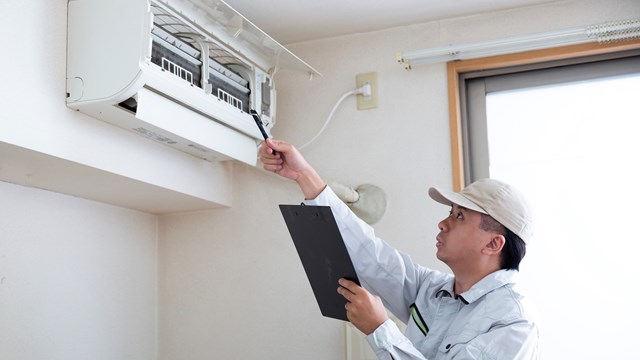
One of the most popular attractions at
One seminar - entitled
"Unfortunately," says Sonenberg, "unlike a "˜normal' corporation where the board is involved in everything on a day-to-day basis, cooperative shareholders tend to funnel daily business out through a managing agent. It's not that the board needs to involve themselves in the minutiae of everything, but they should be involved and proactive."
According to Sonenberg, "There are certain expenses on a co-op's books that are not variable. Those are your mortgage interest expense numbers, and your real estate taxes. There's not a whole lot you can do on that, but you can petition the city to reduce your real estate taxes every year. At minimum, you should make sure you've got a certiorari attorney to file your taxes. Not every co-op in the world gets a tax rebate, but it's worth it to do the work and file."
And there's more, says Sonenberg. "Another thing is the "˜J-51' tax abatement. When a building undergoes a large capital improvement - such as installing a new elevator, for example - it may be eligible for a J-51 tax abatement, which lowers real estate taxes. A development in the Bronx we're working with just put in new elevators and windows and was eligible for huge tax abatements. It's a good thing to look into."
And on the subject of maintenance and repair projects, Sonenberg says that both kinds of work have the potential to cost an inattentive building major bucks.
"It's vital that you review bids properly," says Sonenberg. "There shouldn't ever be a change order during a project that exceeds 10 percent of your original contract price. It's also important to get engagement letters from your engineers, your attorneys - any professional service provider. They should be able to tell you how much things are actually going to cost, and not just be on the clock for three or four hundred dollars an hour. Get things put in writing, and there will be fewer problems."
According to Mackoul, better buildings save themselves money - and the way to become a better building is to have a team of competent, knowledgeable advisors on your side who specialize in the co-op and condo field.
"Here in New York City," says Mackoul, "we have boutique law firms, accounting firms, and insurers who specialize just in co-ops and condos. You wouldn't go to a podiatrist if you needed brain surgery, and you shouldn't go to a generalist for a co-op and condo issue. Co-ops and condos have special needs, and more often than not, problems occur when a board brings in someone not conversant in their particular area."
The insurance market in New York, says Mackoul, is still somewhat constricted from the poor economy of the last few years and the terrorist attacks of 2001.
So what do you do as a building and board member? "You need to frame yourself attractively for an insurance carrier," says Mackoul. "You need to look at your sidewalks - the city has passed on the responsibility and liability for [slip-and-fall litigation] to boards. Also, install emergency lights in your building so people can get out in case of a crisis. If you're a board member who's been told by an insurer to install emergency lighting [and didn't], you might as well have a target on your back, because in a fire, people panic and run, injuries occur, God forbid deaths can occur?and lawsuits occur."
Mackoul also stresses the importance of being adequately covered by directors and officers insurance, in case of another kind of disaster: a lawsuit leveled against the board.
"You need to look at your D&O insurance," says Mackoul. "If you get sued personally as a board member and you don't have that coverage, your personal assets are at stake."
Along with standard D&O coverage, Mackoul urges boards to get an indemnification clause added to their policy. Such coverage guarantees that as the member of the board, if an individual is sued for something that's not covered by other insurance, the corporation or association covers any legal expenses. Mackoul also recommends instituting mandatory homeowners coverage as well.
Lastly, Mackoul advises boards and managers to be proactive and meet with their insurers from time to time to review their policies and make sure they're getting their money's worth.
"Once a year, get your insurance agent in for a board meeting, and ask him or her two specific questions: Is there anything we have that we don't need, and is there anything we need that we don't have? These are all things that in the long run will save your building a great deal of money."
According to Grech, financial savvy extends all the way to the basement and doesn't stop with insurance policies and financial documents.
"Liability and workers' comp for everybody working in your building is very important," says Grech. "If someone's contracted to work in your building and there's not proper coverage, guess who'll pay for it if there's a problem? The board or the building."
"Saving money is all about control," Grech continues, "but don't mistake that for micromanagement. I don't like to be micromanaged, but I respect my bosses when they show control. You have to find the balance between finding control and over-managing things."
One such place where balance is key is payroll. "When do you really need people to work on overtime as opposed to regular time?" Grech continues. "If a [staff member] calls sick one day, you should have a list of people to call who would be willing to do that 8-hour shift without going into overtime. Is it really even necessary to have someone replace the shift at all? If it's a holiday, for example, and you've got a large staff, you shouldn't have the entire staff working in the first place; you should scale back. It's a simple way to save money."
And building staff is not entirely limited to people who work there everyday. Outside contractors can be a drain on finances as well.
"When you get estimates from contractors for work to be done in your building, keep in mind that it's an estimate - not a final price. You need to learn how to negotiate a little without going cheap. Often, contractors will build 10 or 15 percent into their estimates to allow for any unforeseen problems. If nothing happens, they still collect that money ?they don't automatically take it off the bill."
Paying attention to the physical components of your building can also save you money, says Grech. Outdated or worn-out parts of boilers, water meters, and electrical systems may be causing your building to slowly leak money as the seasons change and energy demand fluctuates.
"If your heat timer is 15 years old or older, get a new one," says Grech. "In three years, it will pay for itself. Your boiler needs good tune-ups once a year, too. Water conservation is also a huge issue. Every drip costs money over the course of the year."
By the end of the panel discussion, Expo guests were armed with money-saving tips it wouldn't take an MBA to understand and put to use. From staying on top of tax filings, to re-negotiating insurance policies, to knowing when to check up on the state of their heat-timer, board members, managing agents, and shareholders alike left with a better idea of how to trim the fat from their building budgets without compromising comfort.






Leave a Comment